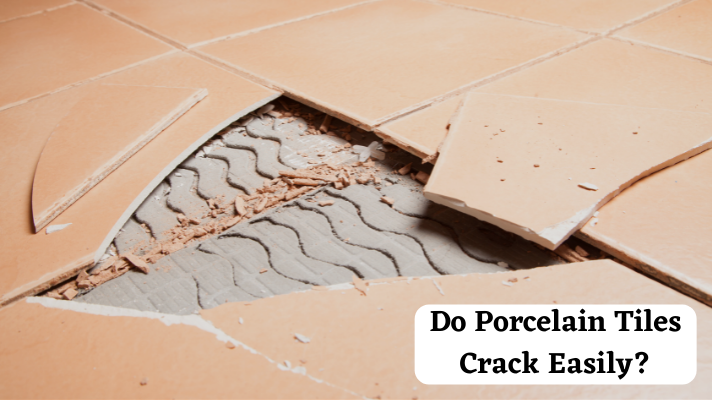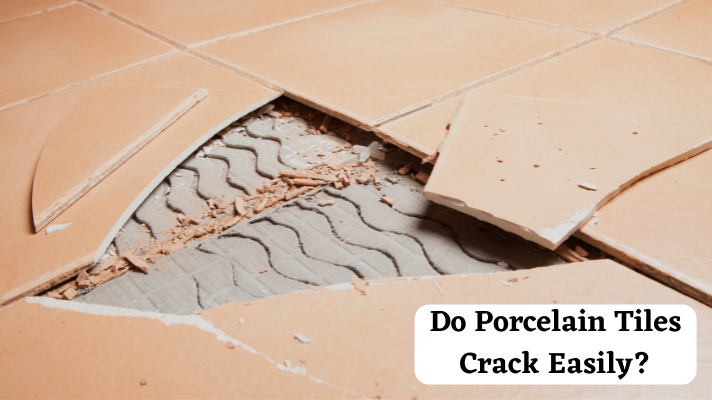
Tiles have been around for centuries and with each development, requirement, and innovation they have grown and evolved to where it is now. For thousands of years, they have been widely used material for both flooring and wall cladding. Ceramics have had an edge over any other kind of tiles for many years, but with technological breakthroughs, many other tiles and innovations have come through. Porcelain which was a popular pottery material has advanced as a tiling option and in the past couple of decades been more than simply a fancy tiling solution.
The clay used to make porcelain tile is finer and denser. The materials begin as clay and are shaped into a range of forms and thicknesses before being glazed and burned in a kiln. It is also burned at a higher temperature and under more pressure. As a result, the tile is more robust, sturdy, durable, and water-resistant than regular ceramic tile.
But are they perfect in every way? Does it actually live up to its hype? What causes porcelain tile to crack? And if it does, how do you keep porcelain tile from cracking? There are so many questions to be answered, and we have them all.
Do Porcelain Tiles Crack Easily?
Porcelain tiles resist wear, scratching, chipping, and breaking because it is exceedingly hard and thick. They are sturdy and long-lasting. As a result, it is an excellent choice subjected to all kinds of usage. Because of its resilience, it is also excellent for high-traffic locations, making it a popular choice for commercial use in hotels, restaurants, retail, and other commercial places.
These days, Porcelain tiles are also known to resist weather effects, such as frost and sun, making it perfect for outside application. Although porcelain tile is highly resilient, it does chip from time to time, especially around the edges. Because of its finish and through body composition the same may not be visible, but it does happen. However, modern porcelain tiles do not crack easily, it must be a particularly unusual circumstance under which a porcelain tile cracks.
What Cause Porcelain Tiles To Crack?
Everything that is subjected to too much undue pressure, is bound to show signs of it, in this case, be it a hairline crack or a chunk chipping away. Porcelain tiles come with the assurance of being wear and tear-resistant and last a lifetime. They are nearly impossible to crack when laid over concrete or a comparable strong base. They are substantially less sturdy when laid over a less rigid material, which is frequently the only alternative, and lead to occasional chipping away. Subsequently, the absence of an anti-fracture membrane underneath the tiles will make it inevitable to crack soon.
Apart from there are other factors that cause porcelain tile to crack, such as extreme temperature changes which is a big factor, although, Porcelain tiles are known to withstand extreme temperature, the same has to be even. In case of a high outside temperature, a relatively cooler indoor temperature, and the occasional exposure to both, Porcelain tiles may give in.
Also, sometimes something as simple as a heavy object falling on the surface of the tile may result in cracking. Though made for durability, if the porcelain tiles are exposed to bearing heavyweight for a longer period of time they may crack because of the sustained pressure.
How Do You Keep Porcelain Tile From Cracking?
As it is clear from the above points, the causes of porcelain tiles cracking are very basic; and if we were to take care of the initial installation carefully, the same may be avoided to great extent. Thus, proper installation, proper grouting, correctly laid anti-fracture membranes will ensure the porcelain tiles do not crack eventually.
While the above pre-installation method avoids much of porcelain tiles cracking away, post-installation preventions may also go a long way in keeping porcelain tile from cracking. Though may seem overwhelming, post-installation prevention involves proper and regular care for your porcelain tiles. Be it maintenance or regular cleaning, the simple yet crucial factor ensures the long life of the tile.
Even after the prevention methods are properly taken care of, if one of your porcelain tiles cracks or breaks, you don’t have to replace the entire floor but take up the broken tile and replace it; here is where keeping extra tiles handy won’t hurt. Rollza Granito, has a wide variety of Porcelain tiles and other natural stone tiles collections. And their dedicated after-sales services is as good as their world-class porcelain tiles itself. Whether you require professional insight and advice to install new tile flooring or grout, the specialist team of professionals at Rollza is here to assist you. We want to take care of your tile requirements so you may enjoy your beautiful flooring for many years.

